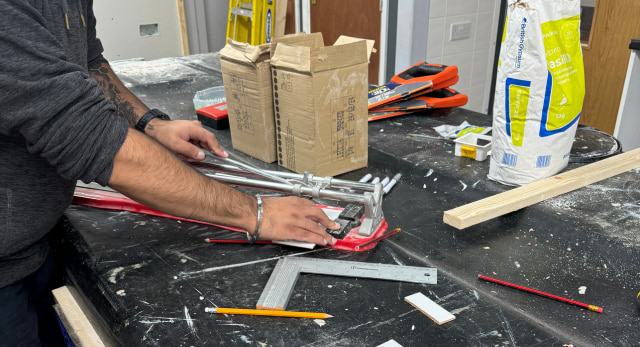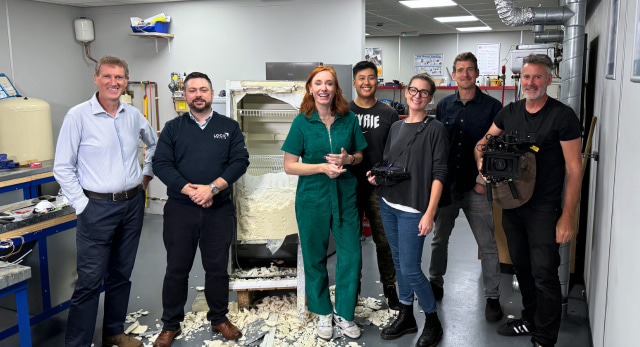In a world of uncertainty, learning a skilled trade is probably the most sure fire way to make a living.
Back in the 80’s and 90’s it was all about business, greed is good, money makes the world go round Thatcherite/New Labour rhetoric. Become an investment banker, become a lawyer, work 20 hours per day!
A lot has changed since the turn of the century and everyday working men and women who are now the driving force of the economy.
Plumbing, gas and electrical skills are all required on a day to day basis, not to mention all the other skilled trades people out there making the country tick. These sorts of jobs have all become more desirable in the last decade.
There is a problem though. A massive skills shortage is proving to be a stumbling block on the UK’s road to recovery as the younger generation fails to be inspired by skilled professions. More apprentices are needed not to mention a higher overall standard of training.
In an effort to inspire, particularly if you are looking for career ideas, here are 7 reasons you should consider learning a trade and making a career out of it.

1. Demand
Right now
there is a skills shortage and it’s actually slowing down the country’s economic recovery as construction projects are put on hold or cancelled.
This is down to a lack of skilled tradesmen and women particularly electricians and carpenters. Contractors are forced to look abroad and pay hugely inflated rates.
We have seen a rise in multi skilled tradespeople purely because it’s easier to do all of the jobs when a specialist is not available.
2. Cheaper to get qualified
It’s no secret university fees are now astronomical. The average annual cost of undertaking a degree in the UK is around £9,000. Add a student loan on top of that with no certainty of a job post degree and this can seem like a pretty unappealing prospect for some.
I plumbing NVQ at a college will cost you around £1500 per year, you can then work while you learn as an apprentice. Learning new skills on top is always going to come out cheaper than a degree and the ability to continue earning good money while learning cannot be understated!
3.It doesn’t have to take an age to get qualified
It does depend on what you want to specialise in but on the whole learning a trade to a level where you can work at it professionally will take half the time it takes to earn a degree. The time it takes to progress once you have a bit of experience under your belt is also short compared to most office jobs.
Logic4training offers short courses for installers who want to upskill, add electrical or gas qualifications to their existing skill set. You can, for example, become a domestic electrical installer in 4 weeks with no prior electrical experience, enabling you to join a competent person’s scheme like NAPIT.
4.You can be your own boss
Why make money for anyone else when you could be reaping the rewards of owning your own business? Take holidays when you want to or work 7 days a week, it’s completely down to you.
A skilled trade enables you to make a name for yourself and leave a legacy if you work hard at it. The sky is the limit!
5.The trades are well paid
Figures of plumbers earning £50,000+ are often banded around, especially in London. It’s true that an in demand plumber can make a lot of money in this day and age but there are many contributing factors.
Experience and demand play their part as does the amount you are prepared to work but a steady wage is easily achievable.
6.Learning a skilled trade means a job for life
In a world where job security is scarce learning a skilled trade can actually give you that security to fall back on!
Okay so maybe this is a slight over exaggeration as pretty much anything can happen but most houses are on a gas supply and only a Gas Safe Registered engineer can work on a mains gas supply, a boiler or any gas appliances.
Households will always need a plumber or an electrician when things go wrong. Buildings, rooms, businesses, they all need wiring up and who else but a trained professional can do that?
7.Job Satisfaction
Lastly and perhaps most importantly is the question of happiness. Would you rather work in a dead end office job just for the money or would you rather feel like you were achieving something with your skills?
Learning a skill and being passionate about the work that you do is an important part of a happy life. You’ll be helping people solve problems, crafting solutions from raw materials, keeping people safe and doing things that you know others just can’t do.
Hopefully you’ll pass on your knowledge to the next generation. What can be more satisfying than passing on a legacy?
Logic4training runs a number of New entrant training courses for beginners and career changers. Click here to learn more.











